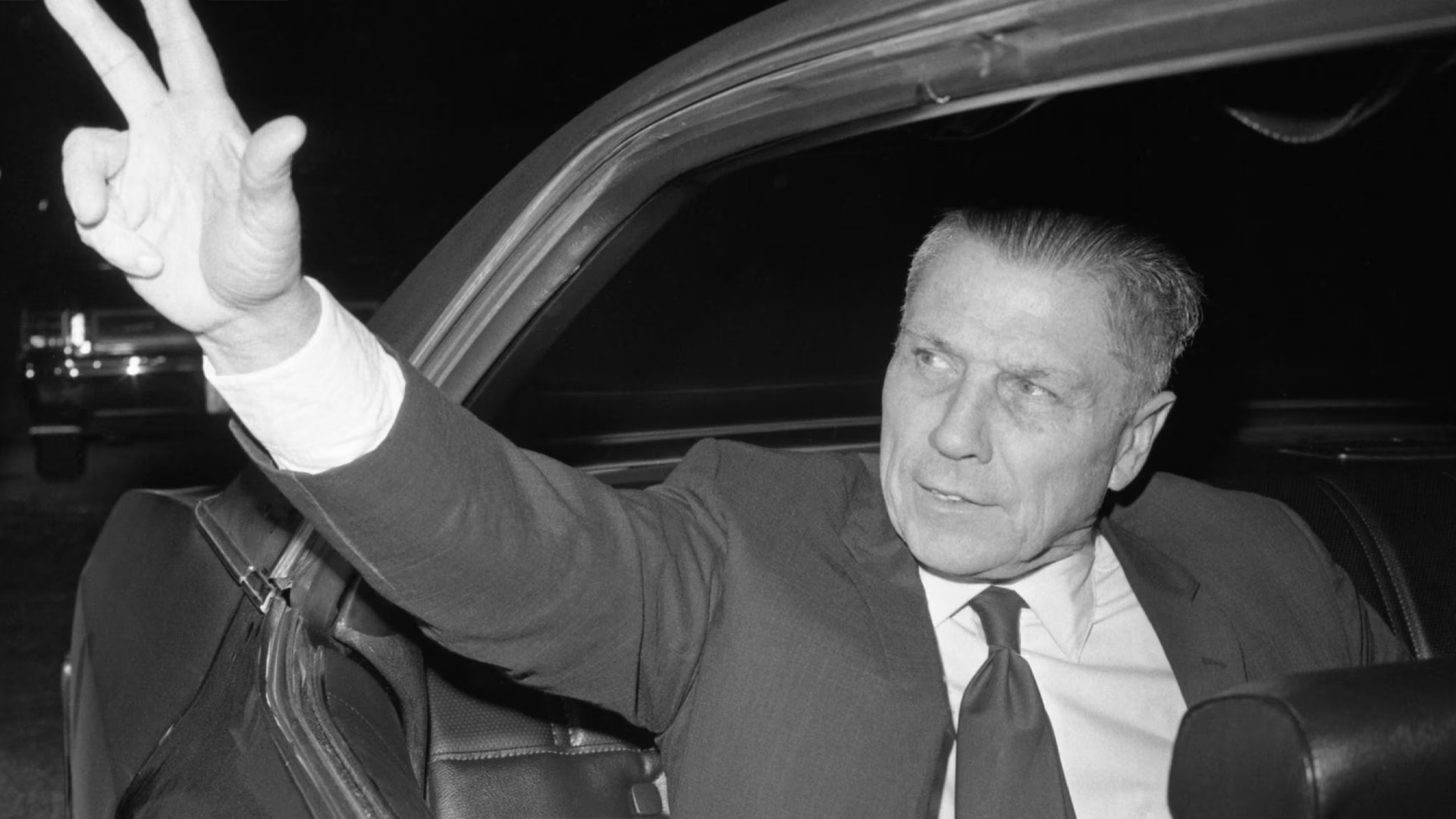The Disappearance of Jimmy Hoffa: Power, Labor, and a Vanishing Act

Jimmy Hoffa was a household name — champion of labor, foe of injustice, and friend to millions of working-class families.
What Happened?
Born in 1913 in Brazil, Indiana, Jimmy Hoffa knew hardship early. After his father died due to harsh mining conditions, Hoffa went to work to support his family. By age 19, he was organizing strikes. By 24, he was a rising star in the Teamsters union. Charismatic and fearless, Hoffa fought for better wages, safer working conditions, and dignity for truck drivers and warehouse workers.
In the 1950s and '60s, under Hoffa’s leadership, the Teamsters became one of the largest and most powerful labor unions in the United States, boasting over 2 million members. His crowning achievement came in 1964 with the National Master Freight Agreement, a sweeping contract unifying over 400,000 truckers. He wasn’t just a labor leader, he was labor royalty.
But Hoffa’s rise was shadowed by controversy. His refusal to bow to corporate interests earned admiration from workers—and suspicion from federal investigators. Hoffa’s connections to organized crime drew national headlines. In 1967, he was convicted of bribery and fraud and sentenced to 13 years in prison. Even behind bars, he remained Teamsters president.
In 1971, President Nixon commuted his sentence, under one condition: Hoffa was barred from union activity. But Hoffa was planning a comeback. On July 30, 1975, he went to meet two known mob figures at a Detroit restaurant. He never returned home. The next day, July 31, his family filed a missing persons report. Hoffa was gone.
Despite massive investigations, search efforts, and endless conspiracy theories, ranging from mob hits to covert government involvement, his body was never found. Hoffa’s disappearance became an American myth, a symbol of how power can vanish into smoke and legend.
But Hoffa’s real legacy is written in paychecks, pension plans, and every voice that dares to speak up for the working class. He once said, 'Organize. Organize some more.' And his voice still echoes in every union hall across the country.
Why It Matters
Jimmy Hoffa built a labor movement that changed the lives of millions. He proved that working people—when organized—could win real power. His life was a paradox of justice and corruption, courage and compromise. His disappearance reminds us that leadership can be both noble and flawed. But his lasting impact on labor rights and his unshakable belief in the power of the people made him unforgettable—even in absence.
?
Who was Jimmy Hoffa, and how did he rise to become one of the most powerful labor leaders in U.S. history?
What made Hoffa such a controversial figure, and how did his ties to organized crime affect public opinion?
What was the National Master Freight Agreement, and why was it such a milestone for American labor?
How did Hoffa continue to influence the Teamsters while serving time in prison?
What are the main theories about Hoffa’s disappearance—and why has it remained unsolved for so long?
How did Hoffa’s disappearance impact the labor movement and the public’s trust in unions?
In what ways does Hoffa’s legacy still shape labor organizing and workers’ rights today?
What does Hoffa’s story reveal about the risks and rewards of leadership in high-stakes political and labor environments?
Dig Deeper
Explore the rise, influence, and mysterious end of Jimmy Hoffa, one of America's most powerful and controversial labor leaders.
Related

Developments in East Asia, 1200–1450
From Confucian bureaucracies to booming cities, East Asia between 1200–1450 reshaped global politics, culture, and technology.

The War on Terror: A New Era of U.S. Power
After the September 11th attacks, the United States didn't just declare war on terrorism—it redefined national security, global alliances, and the limits of civil liberties.

U.S. Imperialism: The Spanish-American War and Its Aftermath
In 1898, the United States fought Spain in a short war that reshaped its identity—from a republic born in anti-colonial revolution to a global imperial power with overseas territories.
Further Reading
Stay curious!
